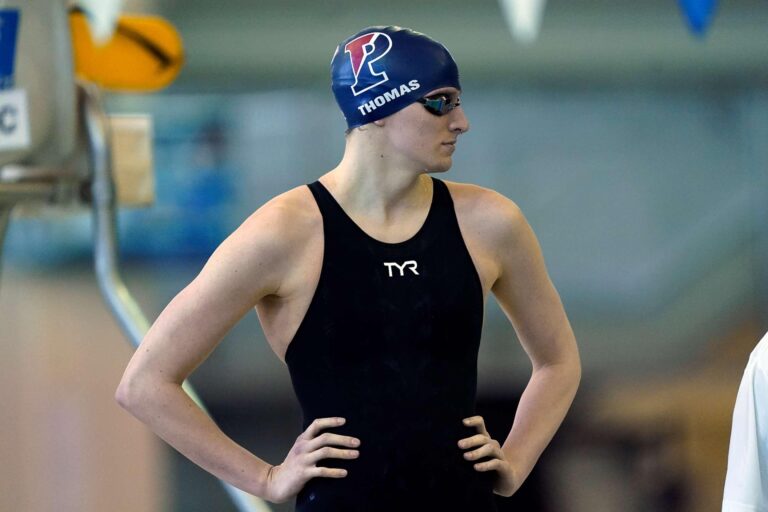The National Collegiate Athletic Association (N.C.A.A.) has announced a new policy excluding transgender athletes from participating in women’s sports, aligning with a recent directive issued by former President Donald Trump. This decision marks a significant shift in collegiate athletics, sparking debates over inclusivity, fairness, and the rights of transgender student-athletes.The move, reported by The New York Times, arrives amid ongoing national discussions about gender identity and sports participation, raising questions about the future landscape of competitive sports at the college level.
NCAA Implements Policy Excluding Transgender Women from Female Competitions
The N.C.A.A. has announced a new directive that bars transgender women from competing in female sports categories, aligning closely with the directives issued by former President Donald Trump’s governance. This policy shift emphasizes the association’s stance on maintaining what it describes as “fair and level playing fields” for cisgender female athletes. The decision has sparked immediate debate across the sports community, with supporters arguing it protects competitive equity, while critics denounce the move as discriminatory and harmful to transgender athletes’ rights and well-being.
Key points of the N.C.A.A. policy include:
- Transgender women are excluded from participating in women’s divisions at all levels of NCAA competition.
- The policy applies uniformly, overriding previous NCAA guidelines that allowed participation under specific hormone therapy conditions.
- Institutions affiliated with the NCAA are required to enforce this policy under threat of sanctions.
| Aspect | Previous NCAA Policy | New N.C.A.A. Directive |
|---|---|---|
| Eligibility | Allowed with 1 year of hormone therapy | Excluded from women’s sports |
| Enforcement | Decentralized across institutions | Strict mandatory compliance |
| Rationale | Inclusivity balanced with fairness | Prioritizes competitive equity |
Impact on Transgender Athletes and Advocacy Responses
Transgender athletes face new barriers following the N.C.A.A.’s decision to exclude them from women’s sports, a policy directly influenced by the Trump administration’s directive. This exclusion not only undermines the competitive opportunities for transgender women but also raises profound questions about equity and inclusion in collegiate athletics. Many affected athletes report feeling isolated and stigmatized,highlighting the emotional toll alongside the physical challenges of navigating identity in rigid sporting categories.
Advocacy groups and civil rights organizations have responded swiftly, organizing efforts to contest the policy on multiple fronts. Their approaches include:
- Legal challenges: Filing lawsuits aimed at restoring transgender athletes’ rights to compete based on gender identity.
- Public awareness campaigns: Amplifying stories of transgender athletes to humanize the issue and mobilize public opinion.
- Policy advocacy: Engaging with lawmakers to promote inclusive legislation that counters discriminatory sports mandates.
- Educational initiatives: Working with schools and sports organizations to foster environments that support diversity and inclusion.
| Advocacy Strategy | Primary Focus | Recent Outcome |
|---|---|---|
| Legal Challenges | Restoring Participation Rights | Pending court rulings in multiple states |
| Public Awareness | Shaping Public Opinion | Viral social media campaigns |
| Policy Advocacy | Legislative Protections | Introduction of inclusive bills |
| Educational Initiatives | Promoting Inclusion | New partnerships with sports federations |
Legal and Ethical Debates Surrounding the New Directive
The directive issued under former President Trump’s administration has ignited fierce legal challenges and ethical discussions across multiple fronts. Proponents argue that the policy is essential to preserve fairness in women’s sports, emphasizing the biological distinctions that, they claim, create uneven competition when transgender athletes participate in women’s categories. Legal advocates for this viewpoint point to Title IX and related state laws, asserting that these protections were originally intended to provide equitable opportunities strictly for cisgender women. Though, critics contend that the move infringes on the civil rights of transgender athletes, labeling the directive as discriminatory and a violation of equal protection under the law.
Ethically, the debate encompasses broader questions about inclusivity and the evolving understanding of gender identity in society. Medical experts and human rights organizations highlight the psychological impacts on transgender youth and adult athletes barred from competing in accordance with their gender identity. These points are frequently enough summarized in the following key concerns:
- Fairness – Ensuring balanced competition without compromising inclusivity
- Discrimination – Preventing policies that marginalize transgender individuals
- Legal Precedents – Interpreting Title IX protections in contemporary contexts
- Health and Well-being – Considering mental health impacts of exclusionary practices
| Argument | Supporters | Opponents |
|---|---|---|
| Biological fairness | Sports organizations, some lawmakers | Medical experts, LGBTQ+ advocates |
| Anti-discrimination | Human rights groups, some athletes | Advocates for women’s sports fairness |
| Legal clarity | Courts interpreting Title IX | Athletes challenging bans in court |
Recommendations for Inclusive Practices in Collegiate Sports Programs
Creating an inclusive habitat in collegiate sports requires a multifaceted approach centered on respect, equity, and open dialog. Athletic programs should implement extensive policies that explicitly protect the rights of all athletes,irrespective of gender identity. This can be achieved by:
- Providing education and training for coaches, staff, and athletes on gender diversity and inclusion.
- Establishing clear, non-discriminatory participation criteria that accommodate transgender athletes without compromising fairness.
- Promoting mental health resources to support the unique challenges faced by LGBTQ+ athletes.
Moreover, collaboration with medical professionals, legal experts, and advocacy groups should inform ongoing reviews of participation guidelines. Transparent communication with the collegiate community fosters trust and minimizes misinformation. Below is a summary of key inclusive practice strategies currently recommended by leading sports organizations:
| Strategy | Objective | Impact |
|---|---|---|
| Education Workshops | Raise awareness on gender inclusion | Improved empathy and reduced stigma |
| Inclusive Policy Frameworks | Clarify athlete eligibility | Consistent and fair application of rules |
| Support Networks | Offer emotional and peer support | Enhanced well-being for all athletes |
Concluding Remarks
As the National Collegiate Athletic Association aligns its policies with the Trump administration’s directive, the exclusion of transgender athletes from women’s sports marks a significant shift in collegiate athletics. This development continues to fuel ongoing debates about inclusivity, fairness, and the rights of transgender individuals within competitive sports. Observers and stakeholders alike will be closely monitoring how this policy impacts athletes,institutions,and the broader conversation surrounding gender identity in the years ahead.



